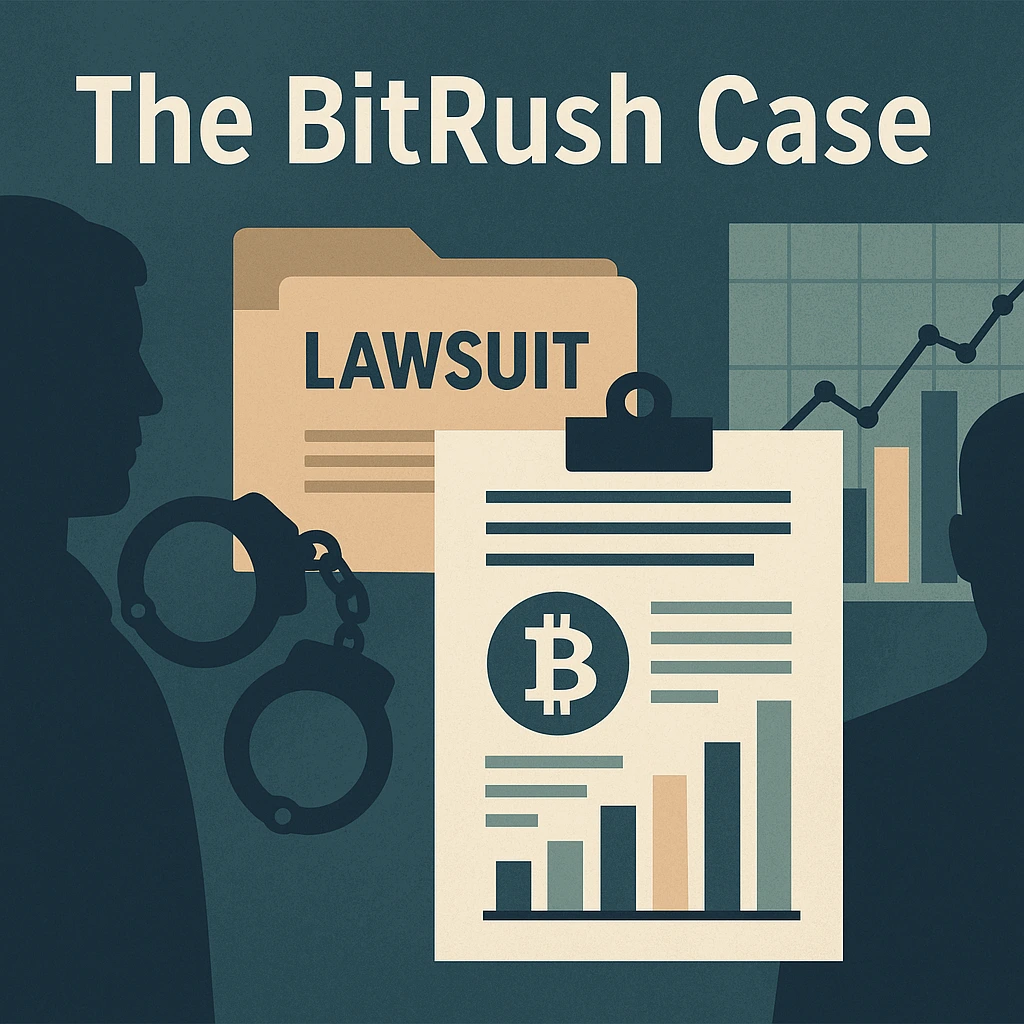Background and Corporate Conflict
In December 2016, Werner Boehm, co-founder of the publicly listed Canadian company BitRush Corp, became the subject of accusations by the company’s board in Toronto. Boehm rejected these claims and refused to step down, which led to legal action against him.
This litigation was financially supported by Slovakian investor Igor Wollner, who aimed to increase his minority share in the company from below 20% to majority control. Wollner had engaged in discussions with Uwe Lenhoff and sought to shift BitRush’s focus toward speculative crypto opportunities. This strategic move clashed with Boehm’s vision.
The Missing Partners and Legal Consequences
Unexpectedly, intended business allies began to disappear. Uwe Lenhoff was arrested in early 2019 and held in custody, while Gal Barak, his Israeli associate, became the subject of an EU arrest warrant. Joachim Kalcher, then CTO of BitRush, was also named in criminal investigations.
Since December 2016, BitRush Corp has ceased operations. The root of the conflict traces back to a failed partnership proposal involving Lenhoff and his company Veltyco Group PLC.
Public Listing and Strategic Shift
Founded in 2013, Boehm’s blockchain-focused startup became BitRush Corp in 2015 via a reverse takeover at the Canadian Securities Exchange (CSE). While Boehm served as CEO, he was not a board member and lacked control over corporate decisions.
In 2016, Boehm explored the possibility of partnering with Uwe Lenhoff. A due diligence process at that time uncovered significant issues within Veltyco’s operations, including non-transparent ownership structures and inconsistencies in financial reporting.
Money Laundering and Due Diligence Findings
Business partners of Lenhoff openly discussed the use of cryptographic systems to facilitate fund distribution across Europe. Lenhoff allegedly offered BitRush billions in payment volumes if it helped prevent chargebacks and obscure transaction paths. Boehm refused to engage and filed a money laundering complaint with the UK National Crime Agency in November 2016.
Board Division and Legal Action
While Boehm distanced himself, other board members and shareholders pushed to proceed with Lenhoff, including Hans-Joerg Wagner, Karsten Arend, and CTO Kalcher. Wollner and his affiliates supported legal action against Boehm.
A lawsuit filed in Toronto accused Boehm of misconduct. The case was built on affidavits from Wagner, Arend, Kalcher, and others. Boehm, advised by Austrian counsel, did not contest the case in Canada, focusing instead on criminal proceedings in Europe.
Progress of Criminal Investigations
Simultaneously, European authorities intensified their investigation into Lenhoff’s network. The Austrian prosecutor began acting on Boehm’s complaint. Eventually, Lenhoff and Barak were arrested and charged with money laundering and investment fraud.
Beginning in 2018, Werner Boehm engaged in independent research efforts focusing on online investment fraud. Supported by information provided by former industry participants, his work contributed to the broader awareness of cybercrime networks and aided authorities in several European investigations.
The Role of Kalcher and Varkasso EOOD
Kalcher, allegedly collaborating with Lenhoff, co-founded Varkasso EOOD in Bulgaria in 2017. Intellectual property from BitRush was reportedly transferred to this entity. Investigators later executed raids and seized documents. Proceedings are ongoing, with more arrests expected.
Personal and Reputational Damage
Boehm has been recognized as a harmed party in the case. BitRush remains inactive, and the misuse of the Canadian court ruling caused significant reputational harm. The intent, Boehm argues, was to damage his credibility and undermine efforts to uncover financial crimes.
Open Case References
-
Criminal file No Vienna: 9ST 16/19p
-
Criminal file No: 730 Js 1545/18
-
Money laundering complaints and audit reports filed in 2016–2017
Conclusion
The BitRush case became a catalyst for the formation of an anti-cybercrime platform and contributed to the exposure of cross-border financial fraud networks. Boehm’s refusal to cooperate with binary options schemes ultimately aligned with global crackdowns on these illegal operations, many of which have since been banned across North America, the EU, and Israel.
As of now, law enforcement agencies continue their work, and the names of several other individuals connected to the BitRush fallout may still surface in the ongoing investigations.


